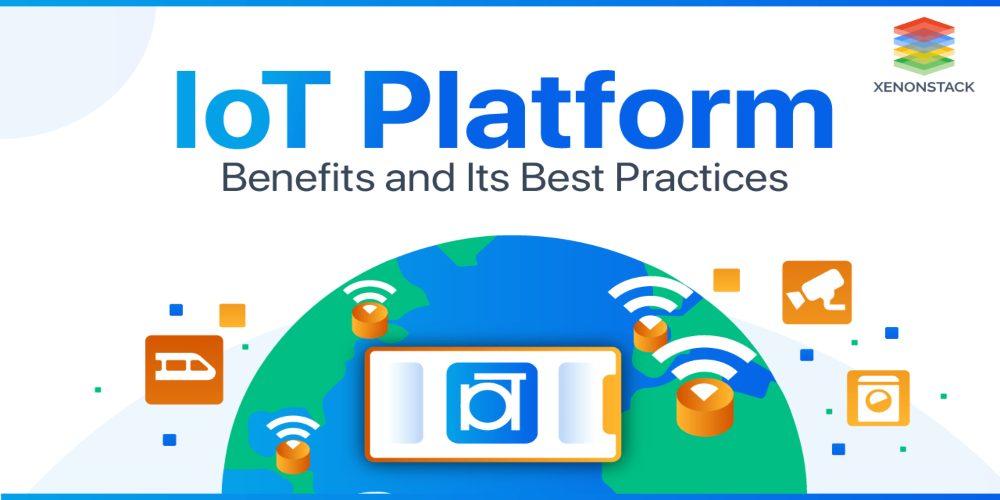Information
An Overview About IoT Platform

The Internet of Things (IoT) has revolutionized the way we interact with the world around us. With the help of IoT technology, we can now control and monitor our devices remotely, making our lives more convenient and efficient. However, managing multiple IoT devices can be a challenge. This is where an IoT platform comes in. In this article, we will explore what an IoT platform is, its benefits, and some popular IoT platforms in the market.
Table of Contents
What Is An IoT Platform?
An IoT platform is a software infrastructure that connects IoT devices, applications, and services. It provides a unified and centralized management interface for devices, data, and analytics. An IoT platform enables devices to communicate with each other, collect and process data, and trigger actions based on predefined rules.
Benefits Of IoT Platforms
IoT platforms offer several benefits to businesses and individuals alike. Some of the benefits are:
- Centralized management: IoT platforms provide a centralized management interface for all the devices and services connected to them. This enables users to monitor and control their devices from a single location.
- Interoperability: IoT platforms offer interoperability between different devices, protocols, and standards. This means that devices from different manufacturers and with different protocols can communicate with each other seamlessly.
- Scalability: IoT platforms are scalable, meaning they can handle a large number of devices and data streams. This makes it easy to add new devices and services to the platform as the business grows.
- Analytics: IoT platforms provide analytics capabilities that enable users to gain insights into their data. These insights can be used to optimize processes, reduce costs, and improve efficiencies.
Popular IoT Platforms
There are several IoT platforms available in the market, each with its own set of features and capabilities. Here are some of the most popular IoT platforms:
AWS IoT: AWS IoT is a cloud-based platform that enables users to connect devices to the cloud, process and analyze data, and trigger actions based on predefined rules. AWS IoT supports a wide range of devices and protocols and offers a variety of analytics and machine learning services.
Microsoft Azure IoT: Microsoft Azure IoT is a cloud-based platform that provides a suite of services for connecting, monitoring, and managing IoT devices. Azure IoT offers a range of analytics services, including real-time stream processing, machine learning, and predictive maintenance.
IBM Watson IoT: IBM Watson IoT is a cloud-based platform that provides a suite of services for connecting and managing IoT devices. Watson IoT offers advanced analytics capabilities, including predictive maintenance, anomaly detection, and machine learning.
Google Cloud IoT: Google Cloud IoT is a cloud-based platform that enables users to connect and manage IoT devices, collect and analyze data, and trigger actions based on predefined rules. Google Cloud IoT offers a range of machine learning and analytics services.
To Conclude
IoT platforms are an essential part of the IoT ecosystem. They provide a centralized management interface for devices, data, and analytics, enabling businesses and individuals to monitor and control their devices from a single location. With the help of IoT platforms, businesses can improve efficiencies, reduce costs, and gain insights into their data. There are several IoT platforms available in the market, each with its own set of features and capabilities. Businesses should carefully evaluate these platforms and choose the one that best suits their needs.
Read more – Top 5 Major Applications Of IoT In The Automotive Industry

-

 Business3 years ago
Business3 years agoHow to Do Long-Distance Moves with Children
-

 Travel2 years ago
Travel2 years agoQuick Guide: Moving To Santa Rosa?
-

 Real Estate3 years ago
Real Estate3 years agoWhy Dubai Festival City is a Great Neighbourhood for Young Learners
-

 Business3 years ago
Business3 years agoIs Guest Posting a Good Inbound Marketing Strategy?
-

 Business1 year ago
Business1 year agoThe Ultimate Guide To Thriving In Your Printing Franchise
-

 Business1 year ago
Business1 year agoExploring The Benefits And Challenges Of Restaurant Franchising
-

 Tech3 years ago
Tech3 years agoCyber Table That Will Change Your Life
-

 Lifestyle1 year ago
Lifestyle1 year agoDallas’ Hidden Gems: 6 Must-Try Restaurants Off The Beaten Path!









Recent Comments